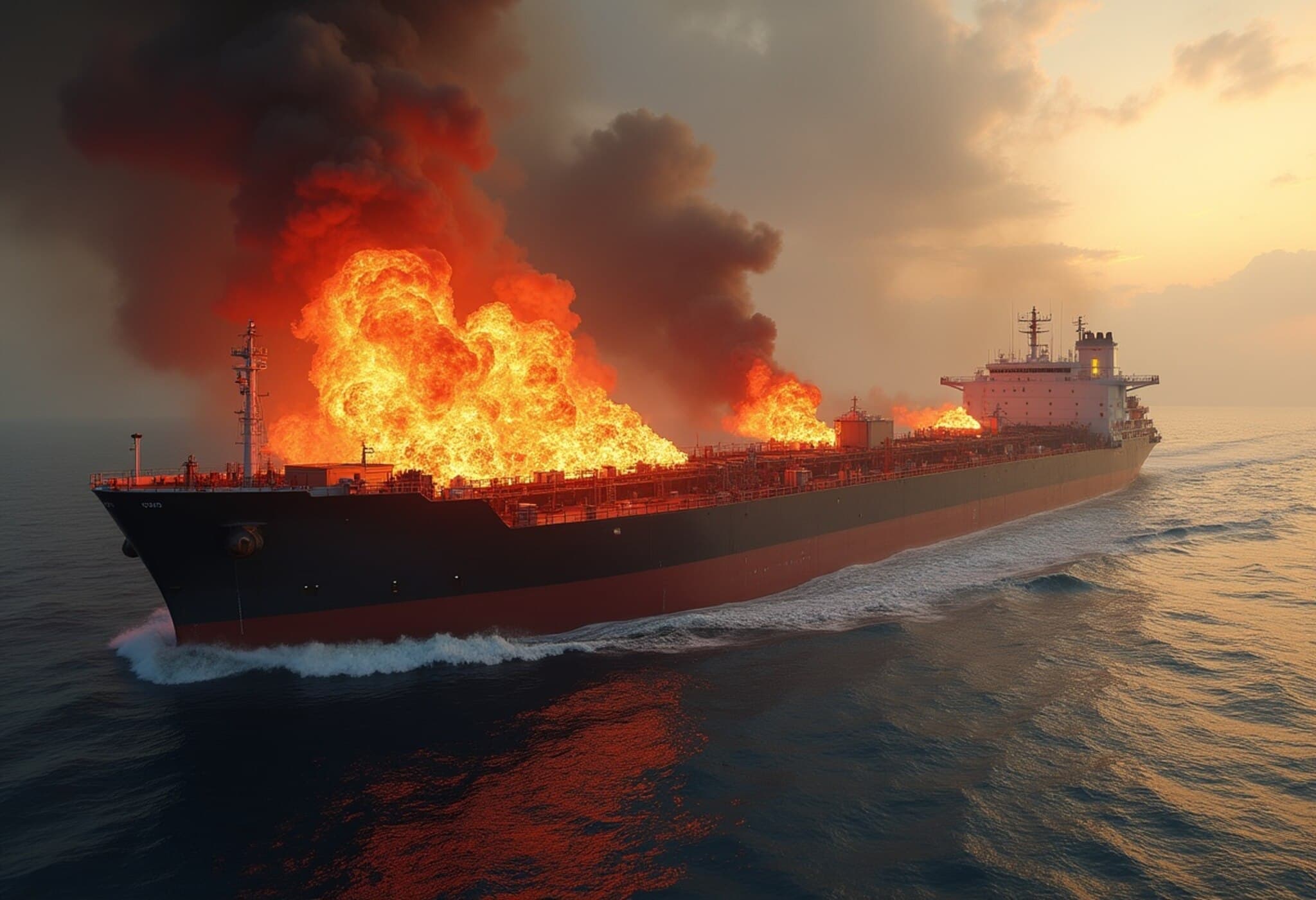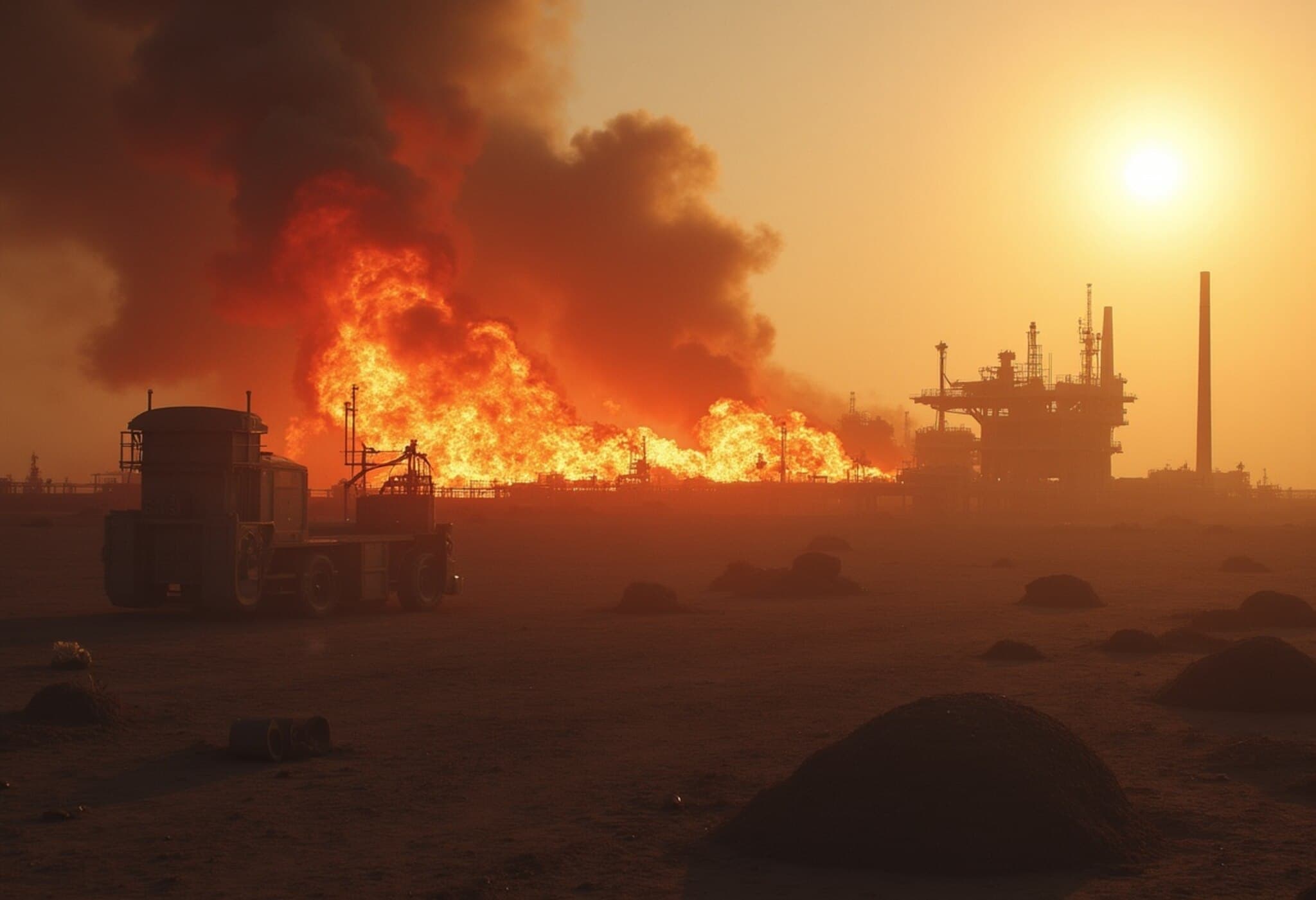Market Volatility Surges as Israel and Iran Clash
Global equity markets have taken a hit following heightened tensions between Israel and Iran, sending investors scrambling for safer options. The recent conflict, which reportedly resulted in the deaths of high-ranking Iranian military and scientific officials, triggered a sharp flight to safety across financial markets.
Energy and Shipping Sectors React Strongly
One of the most immediate market responses was seen in crude oil prices. Brent crude surged by 7%, reaching $78.50 a barrel, its highest since April, reflecting fears of possible supply disruptions in the region. This price jump had ripple effects across various sectors.
Airlines struggled amid soaring fuel costs and potential declines in travel demand, while oil tanker companies experienced a significant boost. For example, the shares of the U.S.-listed oil tanker firm Frontline jumped by 8.5%, outperforming most stocks in the Stoxx Europe 600 index.
Analysts attribute this to the anticipated need to reroute shipments as operators avoid riskier, conflict-affected areas. The typical delay charterers have before confirming fixtures might have initially exaggerated the surge, but sustained regional tensions could continue to strengthen tanker owners’ pricing power.
Should Iranian oil exports, currently around 1.5 million barrels per day and largely transported by sanctioned fleets, face further pressure, compensatory increases by Saudi Arabia and other OPEC countries could enhance opportunities for compliant shipping firms.
Shipping Giants and Regional Routes Under the Spotlight
Danish shipping leader A.P. Moller-Maersk witnessed a share increase of 4.5%, buoyed by concerns over potential disruptions to the Suez Canal. The recent attacks by Iranian-aligned Houthi rebels in the Red Sea have forced vessels to reroute around the Cape of Good Hope, raising shipping costs temporarily.
Notably, if tensions prolong passage delays through the Suez Canal, freight rates may remain elevated, benefiting shipping operators, although higher fuel prices might impact the earnings of some companies negatively.
Resilience in Denmark’s Wind and Pharmaceutical Sectors
Despite the turmoil, Denmark’s stock market shows a remarkable resilience thanks to its strong pharmaceutical and renewable energy sectors. Firms such as Novo Nordisk and Zeeland Pharma, along with wind power players Orsted and Vestas Wind Systems, have largely defied the broader market downturn.
The combination of these sectors' relative insulation from oil price shocks and their defensive earnings profiles positions the Danish market favorably in the face of rising energy costs and geopolitical instability.
European Airlines Face Headwinds
In stark contrast, European airlines are facing significant setbacks. Shares of Wizz Air and Ryanair dropped by 5% and 3.5%, respectively. Analysts highlight Wizz Air’s heightened exposure to jet fuel price surges and the conflict zone, potentially slashing its earnings by up to 15% per 10% fuel price increase.
Ryanair, benefiting from better hedging strategies, is expected to suffer a milder earnings impact, estimated around 3%.
Credit Markets and Real Estate Under Pressure
Risk aversion has spilled over into credit markets, particularly affecting assets linked to Middle Eastern stability. Dubai’s real estate bonds, including those from Damac Properties and Arada, have been downgraded to “Underweight” amid fears a prolonged conflict could dampen foreign investment critical to the sector.
Dubai’s appeal as a stable investment haven might be tested if geopolitical tensions escalate further.
The Critical Question: Will the Strait of Hormuz Be Threatened?
The broader market nerve centers on the possibility that conflict might extend to the Strait of Hormuz, a vital chokepoint responsible for nearly one-third of the world’s seaborne oil trade. A blockade there could potentially push oil prices into the $120-$130 per barrel range.
However, some analysts offer a more tempered outlook. Improved diplomatic ties between Iran and Gulf neighbors, such as Saudi Arabia and the UAE, reduce the likelihood of attacks on regional energy infrastructure. As a result, any disruptions to oil flow are expected to be limited and short-lived.
Furthermore, Iran’s oil exports stand at their highest levels since the U.S. withdrew from the nuclear deal in 2018, suggesting Tehran has more to lose than gain by escalating the conflict beyond Israel.
Outlook Amid Uncertainty
While markets remain jittery, the complex dynamics in the Middle East have created pockets of opportunity alongside significant risks. Sectoral winners like oil tankers, shipping firms, and resilient pharmaceutical and renewable energy stocks provide some refuge for investors seeking stability amid geopolitical turmoil.
Conversely, sectors closely tied to fuel costs and regional security, including airlines and Middle Eastern real estate, face a bruising environment going forward.



















